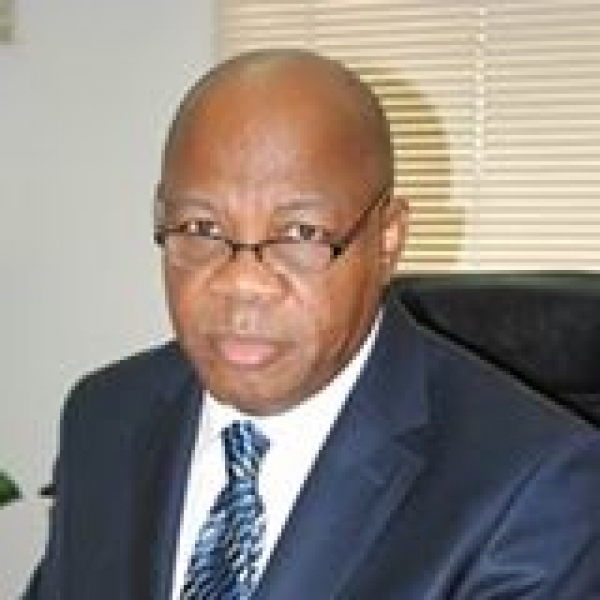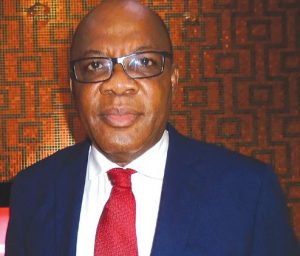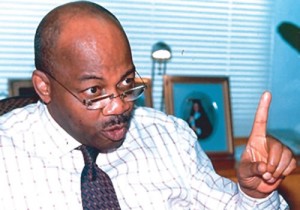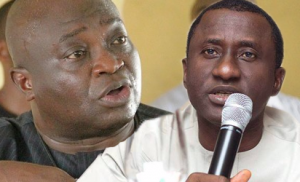
LAGOS, Federal Republic of Nigeria. Former President of the Nigerian Bar Association (NBA), Olisa Agbakoba, in an interview with journalists, spoke on the just concluded general elections, challenges before the president-elect, and other issues. Excerpts…
Looking at the just concluded election, we noticed that some political parties that endorsed the two major parties still have their names on INEC ballot paper and people still voted for them. What is your take on that?
It is part of the growth process. I have identified that, by and large, even though logistics was a challenge, let us say that the elections were peaceful and the results accepted. Out of this election process, have come a number of new things. Concession is one. A man concedes. That also explains why we have concessions during the governorship election and the election was not seen as a sell-out. Then we have also seen the rise of institutional opposition. The next one now is to begin to see the rise of strong parties. There is no way that the Deputy Prime Minister of the Liberal Party in the UK will say ‘I want to decamp to Labour or the Conservatives’ because there is an ideology. Here, truth be told, there isn’t any ideology. If at all there is an ideology, it is the APC that is showing a bit of it. So, hopefully, in the next four years, this kind of things will be impossible – situation whereby ‘Today I am here and then I become an opportunist by endorsing this party, but staying on the ballot paper’ So, we also need to see a tougher INEC that disallows this kind of process. If you are endorsing a party, I, as chairman of INEC will disqualify you. That is the only way to go. You can’t endorse and be on the ballot paper. We need a tougher regulator. When I was on the Uwais Commission, we thought that INEC was doing far too much. And that is why we recommended the Political Parties Regulatory Commission to deal with party discipline. So, when INEC is dealing with party discipline, dealing with buy ballot paper, card reader, then there is too much work. INEC should be like a referee who picks the ball, go to the centre circle, blows the whistle and the match takes place in 90 minutes. The referee does not mark the goal posts or put the corner flags where they should be. So, the next evolution in Nigeria’s electoral process ought to be to ask questions whether or not INEC should not be streamlined.
Given what happened during the election, will you support a two-party system as it is now?
It is the electoral market that does that anywhere in the world. By which I mean us, the people of Nigeria. In America, there are over 100 political parties. In the UK, there are so many. And there are fortunes. In the 1800s, the Liberal party was the most dominant party. So, let us not constitutionalise how many political parties we should have. But generally speaking, the world has seen that there can’t be two parties. So, I wouldn’t support it or not. Look at the United Kingdom Independence Party (UKIP) in the UK today, suddenly they are showing strength because they are hitting on an issue that people like. But if they had gone to the parliament and banned all the parties, there may not be UKIP today. In Nigeria today, if we decide to stick with PDP and APC, nobody knows maybe KOWA party will rise. If the KOWA presidential candidate keeps it, we can never tell how far she can go. Buhari waited for almost sixteen years before he got. So, KOWA could be a force in the future if more women support it.
Why do you think we need a new anti-corruption framework?
Because the present one hasn’t worked. It caught nobody. That is what is wrong with it. EFCC has no money. EFCC is not independent. I served in the Legal Committee of the national conference and I raised unsuccessfully chapter 10 of the South African constitution which identifies institutions consolidating democracy and makes them independent of executive control in terms of tenure of appointment, removal from office and funding. And I said that the EFCC is unable to exercise its prosecutorial authority independently because it is afraid of the president, though I am not talking about President Jonathan. But the EFCC is afraid because its source of money comes from the president. So, a president can cripple the EFCC. We need to have a conceptual constitutional framework for EFCC and office of Attorney-General. That is what I hope the president-elect, Muhammadu Buhari can very quickly get to do. If the last Auditor-General who gave an account of monies in the federation was dismissed from office under president Obasanjo, an Accountant –general cannot do his work well if the Minister of Finance is ordering him about. The Inspector-General of Police can’t do his work well if he is afraid of his budget. These institutions were identified in South Africa and taken away from the control of the president and they report to the National Assembly for funding. This has made the South African so balanced that Jacob Zuma was taken to court for rape and corruption. It can’t happen here. No Nigerian president can be taken to any court under the present situation. The Nigerian president is the strongest president in the world and power not only corrupts, absolute power corrupts madly and absolutely. That is their problem. It will take an angel to be a good president in Nigeria. The culture of impunity is a challenge for General Buhari. He has to reverse it and enthrone constitutional democracy, That is what Ben Nwabueze calls ‘a revocation of power’. When a constitution allows power to be revoked, that is the ultimate way that impunity can be stopped. So, let us give ourselves a pat on the back that it happened here. Again, President Jonathan takes credit. A president Jonathan in the shape of Robert Mugabe would have jailed Buhari, and that is the end. The media will write, human rights will go to court, the UN will pass resolutions and nothing will happen. So, that is the reason why I give president Jonathan credit as the number one hero of this election.
Looking at the constitution amendment and the 2014 National Conference, some Nigerians have argued on the need to remove Immunity Clause for the president and governors. What is your take on that?
Immunity should be there. Don’t throw the baby out because the bath water is dirty. The history of immunity clause is to prevent people from disturbing the governor or president. It is like telling the governor that ‘for the time you are here, the possibility taking you to court will be suspended. Not because you are not guilty, but it will be suspended until you have completed your tenure in office’. Unfortunately, we Nigerianise it. We now use it to steal. That is why I don’t like it. But if we fix the constitution, they remove security vote, there will be clear limitation of power. Governors will not go to Abuja, because they don’t have to go to Abuja. They will be worrying how to run their states because of the 98 items of power under the constitution. When you restructure Nigeria, there will be no money to steal and, in any case, the money will now be localized. When some of these lapses are corrected, some of the good things in the constitution – we will have a new view about them. Immunity is like plea bargain. Plea bargaining is a good idea but Lucky Igbinedion used it to get away. That doesn’t make it bad. A civilized country will say ‘this guy is guilty. It is going to cost us $4m to prosecute him. But they told him ‘just say that you committed manslaughter and not murder’.
He says yes. So, you are no longer to be executed, but will be sentenced to life imprisonment’. That is plea bargaining. But plea bargaining is not when you steal N100m and then you are given six months imprisonment or you pay an option of fine of N3m. So, some of the good concepts in the constitution have been bastardised by government. So, let us not have a negative view of it.
Credit: Daily Independent (Nigeria)




